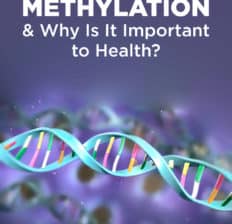This Dr. Axe content is medically reviewed or fact checked to ensure factually accurate information.
With strict editorial sourcing guidelines, we only link to academic research institutions, reputable media sites and, when research is available, medically peer-reviewed studies. Note that the numbers in parentheses (1, 2, etc.) are clickable links to these studies.
The information in our articles is NOT intended to replace a one-on-one relationship with a qualified health care professional and is not intended as medical advice.
This article is based on scientific evidence, written by experts and fact checked by our trained editorial staff. Note that the numbers in parentheses (1, 2, etc.) are clickable links to medically peer-reviewed studies.
Our team includes licensed nutritionists and dietitians, certified health education specialists, as well as certified strength and conditioning specialists, personal trainers and corrective exercise specialists. Our team aims to be not only thorough with its research, but also objective and unbiased.
The information in our articles is NOT intended to replace a one-on-one relationship with a qualified health care professional and is not intended as medical advice.
How to Support Methylation + Why It’s Important for Your Health
May 4, 2022

Although it may sound like a complicated process, methylation is the basis for life.
What does methylation do in the body? It helps embryos first develop and grow and then assists in gene expression, nutrient conversion and many other bodily processes.
Methylation supports functions of the cardiovascular, detoxification and neurological systems, just to name a few. You can see why it’s important to support normal methylation, including to prevent certain symptoms and diseases from developing.
Your body needs certain enzymes and nutrients, especially folate and B vitamins, to carry out the methylation cycle. Oxidative stress and inflammation are capable of interfering with the process. This means that a healthy diet and lifestyle are both key for optimizing methylation.
What Is Methylation?
Methylation is a biochemical process in which methyl groups (CH3, or a single carbon atom and three hydrogen atoms) is transferred from one molecule to another. It happens many billions of times per day inside the body, helping power our cells and organs.
What does methylation do to DNA, and why does it mater? As a metabolic process, it basically switches genes on and off and repairs DNA.
This is a big deal, because gene expression has the power to influence many aspects of health, including one’s risk for certain diseases, such as neurological issues and some cancers.
Methylation and demethylation, which is the opposite process, basically work together to control different functions throughout the body.
Within the human body, methylation plays a role in:
- DNA expression
- Embryo development
- Cellular energy production
- Neurotransmitter synthesis
- Hormone production and metabolism
- Inflammation and immune responses
- Conversion of the amino acid called homocysteine into another amino acid called methionine; this helps keep cholesterol levels balanced and reduces the risk for cardiovascular problems
- Conversion of important nutrients from one’s diet into active vitamins, minerals and antioxidants
- Fat metabolism
- Stress response (“fight or flight response”)
- Detoxification processes, including of the liver, that helps eliminate heavy metals and toxins
Methylation also allows the body to make a number of other important molecules, including:
- Melatonin, which helps with sleep
- Serotonin, which regulates mood, appetite and more
- Norepinephrine, which is involved in arousal and motivation
- Glutathione, often called the body’s “master antioxidant” that fights free radicals
- Coenzyme Q10, an antioxidant involved in energy production and healthy aging
- Nitric oxide, which facilitates vacillation of blood vessels and circulation
- L-carnitine, an amino acid that supports metabolic processes and cellular energy
- Cysteine, an amino acid that helps make protein and form collagen in the body
- Creatine, needed for skeletal and muscle function
- Taurine, an amino acid that supports the heart, nerves and brain
Testing and Importance
What causes poor methylation?
The methylation cycle is dependent on the active form of folate called 5-MTHF (also known as methylfolate). When we consume folate/folic acid from our diets, it’s converted to 5-MTHF.
In order for 5-MTHF to be created, you need to make enough of an enzyme called methylenetetrahydrofolate reductase (MTHFR).
Research suggests that a high percentage of people, up to 50% of Americans, may have a genetic mutation that prevents them from making enough MTHFR, and therefore not enough 5-MTHF is produced. This then interferes with the methylation cycle.
What type of symptoms can this problem cause? Each person with a MTHFR mutation or poor methylation seems to respond somewhat differently.
Some symptoms that might be experienced due to poor methylation include:
- Changes in cholesterol levels
- Cognitive impairments
- Low energy
- Mood and sleep-related issues, including ADHD, depression, anxiety, IBS and insomnia
- Digestive problems
- Migraines and headaches
- Potentially higher risk for certain diseases, including ADHD, Alzheimer’s, atherosclerosis, diabetes and autoimmune disorders.
How is methylation tested?
A methylation panel is performed to uncover information about one’s biochemical methylation pathways. This type of test measures methylation metabolites in the blood and is useful for guiding patients suffering from poor methylation to know which types of supplements may be helpful.
A genetic test can also be done to determine if you have the MTHFR mutation, which will indicate that your body is struggling with the methylation cycle. Those with MTHFR mutations usually need to be extra careful to live healthy lifestyles and consume extra nutrients that serve as methyl donors.
How to Improve/Support Methylation
How do you increase methylation? Whether or not you have the MTHFR mutation, the lifestyle habits below can help support normal methylation:
1. Eat a Nutrient-Dense Diet
Emphasize whole, unprocessed foods in your diet, especially those that provide natural folate and B vitamins (including B6 and B12), which are methyl donors and critical components of normal methylation.
Folate from food sources is especially important because the body has a harder time absorbing synthetic folic acid. Magnesium, zinc and protein (which is high in glutathione precursors) can also help support methylation.
Some of the best foods for assisting the methylation cycle include:
- Dark leafy greens
- Asparagus
- Avocado
- Garlic and onions
- Cruciferous vegetables, including kale, broccoli, cauliflower, cabbage, etc.
- Fish and seafood
- Eggs
- Beans and legumes
- Nuts, including almonds and walnuts
- Seeds, including sunflower and pumpkin seeds
- Grass-fed meats and poultry
- Probiotic foods, which promote general gut health which is needed for nutrient absorption
- High-antioxidant foods, like berries, citrus fruits, seaweeds, herbs and spices like turmeric, and dark chocolate
You’ll also want to limit or avoid inflammatory foods, such as those with:
- gluten
- added sugar
- preservatives
- synthetic chemicals
- processed meats
- conventional dairy
- refined vegetable oils
- trans fats
- processed/enriched grains
2. Supplement to Meet Your Nutritional Needs
In addition to a healthy diet, high-quality supplements can help provide your body with the nutrients it needs to perform methylation. Look for either a multivitamin or other supplements that provide at least 100% of your daily needs for:
- L-methylfolate or fermented folic acid (the active forms of folate)
- Vitamin B12 (in the form of methylcobalamin)
- Vitamin B6 (in the form of pyridoxal 5’-phosphate)
- Vitamin B2 (in the form of riboflavin 5’-phosphate )
- Zinc
- Vitamin D3
- Magnesium
- Betaine
- Protein powder supplements, including collagen protein, bone broth protein or whey protein
3. Exercise and Sleep Enough
High levels of stress can make MTHFR mutation symptoms even worse and hinder the overall methylation process. Getting enough of both exercise and sleep is important for fighting free radicals, keeping inflammation under control and promoting detoxification.
Aim for 30+ minutes of exercise per day if possible, and prioritize sleep by getting between seven to nine hours per night.
4. Avoid Smoking, Too Much Alcohol and Certain Drugs
Alcohol, cigarettes and other drugs all take a toll on your liver, which is responsible for cleaning your body of these substances. When liver function suffers, due to damage and inflammation, methylation is disrupted.
Some prescription and over-the-counter medications can further deplete already low folate levels or interfere with methylation. Speak with your doctor if you take any of the following drugs and you suspect you have an issue related to methylation:
- Antibiotics, specifically sulfa-containing drugs like Sulfamethoxazole and trimethoprim (SEPTRA or Bactrim), sulfasalazine or triamterene (found in Dyazide)
- Birth control pills
- Hormone replacement therapy drugs
- Anticonvulsants (like phenytoin and carbamazepine)
- Antacids/acid blockers
- NSAID pain relievers
- Antidepressants
- Chemotherapy treatments
- Cholesterol-lowering drugs (like niacin, acid sequestrants, cholestyramine, colestipol and colesevelam)
- Nitrous oxide (typically during dental work)
- Methotrexate for rheumatoid arthritis
- Metformin for diabetes and PCOS
Conclusion
- Methylation is a metabolic process that switches genes on and off and repairs DNA. It also affects nutrient conversions through enzyme interactions.
- Roles that methylation has include assisting in immune responses, cardiovascular health, hormone and neurotransmitter production, and much more.
- This process relies on other enzymes and nutrients in your body, especially folate and B vitamins. If you can’t properly absorb these nutrients, which can happen if you have the MTHFR mutation, methylation suffers.
- It’s important to support methylation to improve overall health and prevent issues related to your energy, mood, brain health and sleep. To do this, eat a nutrient-dense diet, exercise, sleep enough and take high-quality vitamins that act as methyl donors.











